Idea by
Patrícia Robalo and Pedro Gonçalves
muta
Call for ideas 2020
Game of Mirrors
Game of Mirrors
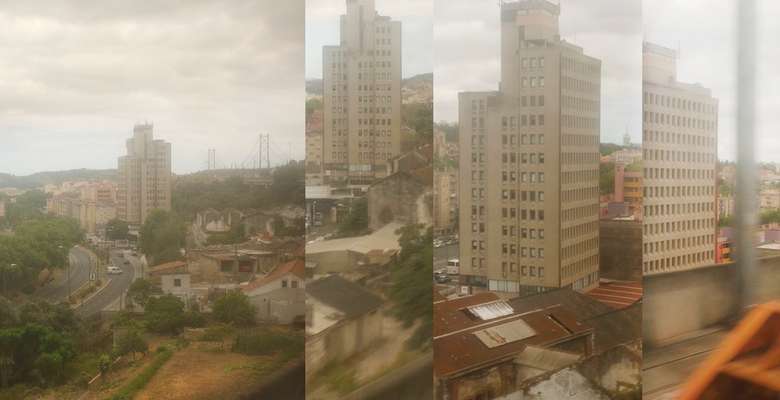
- New alliances
Univocal ideas of Portuguese architecture contrast with radical transformation of the built environment in which it emerges. Architecture’s field of work remains generally rigid. The absence of spatial and territorial dimensions in public policies, as well as, architecture subjects, objects and contexts disconnection to those relevant to public debates, become specially visible on contemporary problems. Namely; housing, infra-structure, public space and urban segregations. Dialectics between architecture and discourses describing it are never neutral. Game of Mirrors is a cognitive and sensorial assessment device, of forms, themes and questions that shape reflection, contamination and representation, between built spaces and published works - images, drawings, texts. Taking into account prior performative assays, our final goals are to materialize this device for exhibition/experimentation and to endless simulation through a written and imagetic Game of Mirrors edition.
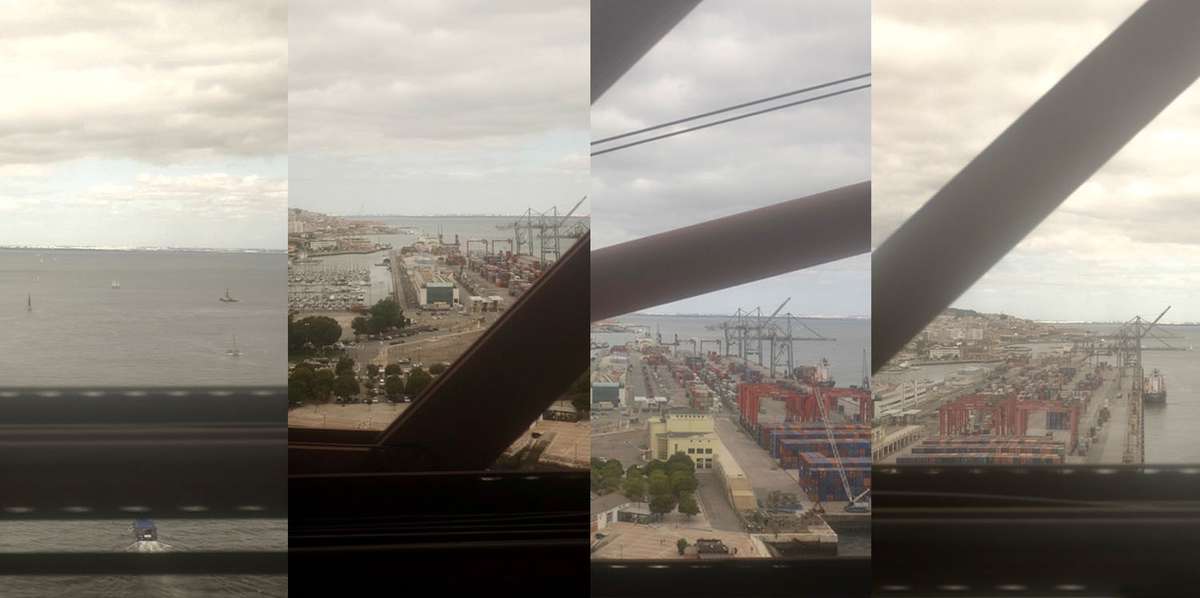
Methodology is developed around two lines crossing in a game of mirrors. One line is built on survey and analysis of the most relevant spaces built on the last decade, and later record with photography and video. The other is build on systematization of published texts (cathalogs, thesis, books) in the field of architecture, also in the last decade, selection of most relevant, organization by forms, themes and questions.
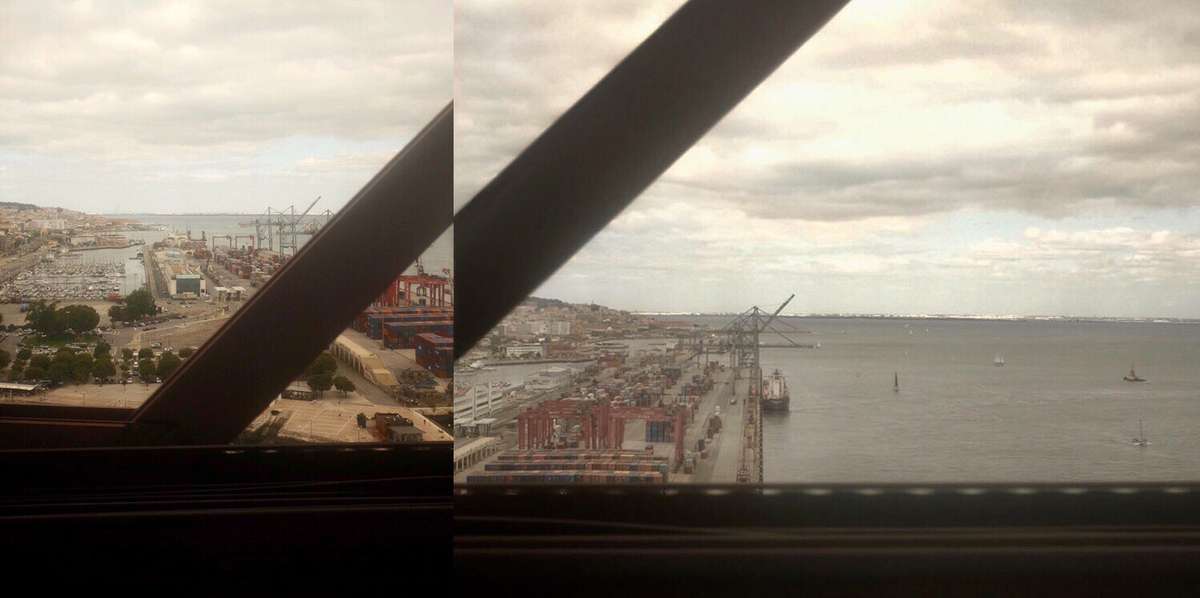
Game of Mirrors will have two complementary existences. A physical construction in which a sensorial approach to reflection, contamination and representation of mirrors brings us closer to measuring distances, proximities, identify absences and disconnections. And a paper edition that gives endless simulation to the game of mirrors and new life to the elements used to construct the device.
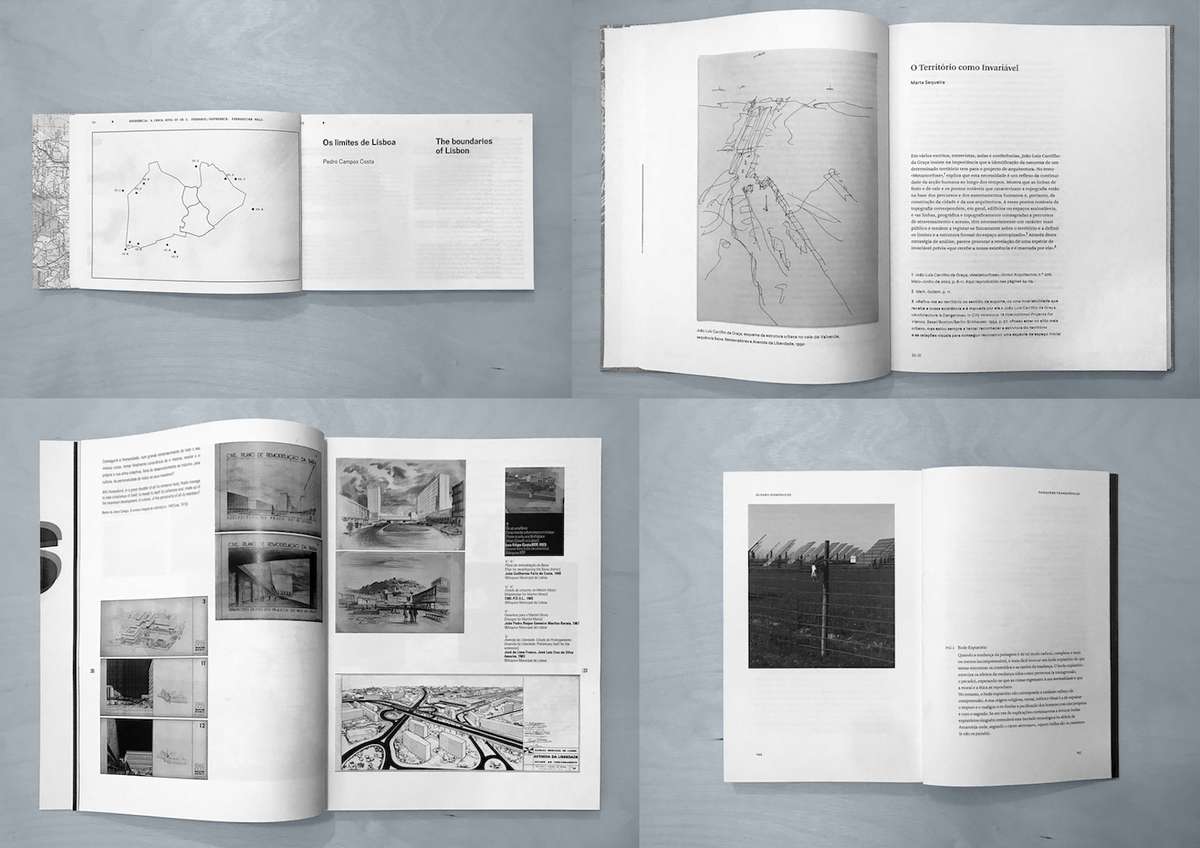
Continuum were prior performance moments based on a script. Written over an assemblage of selected parts of published texts from other authors in a methodology influenced by cadavre exquis technique. These were first aproaches to systematization of pertinent published works and to project formats versus space, time and public. The focus was on broad themes, landscape, heritage, urbanization and virtual space, and took place in regular trips in the subway and in the train crossing Tejo river.
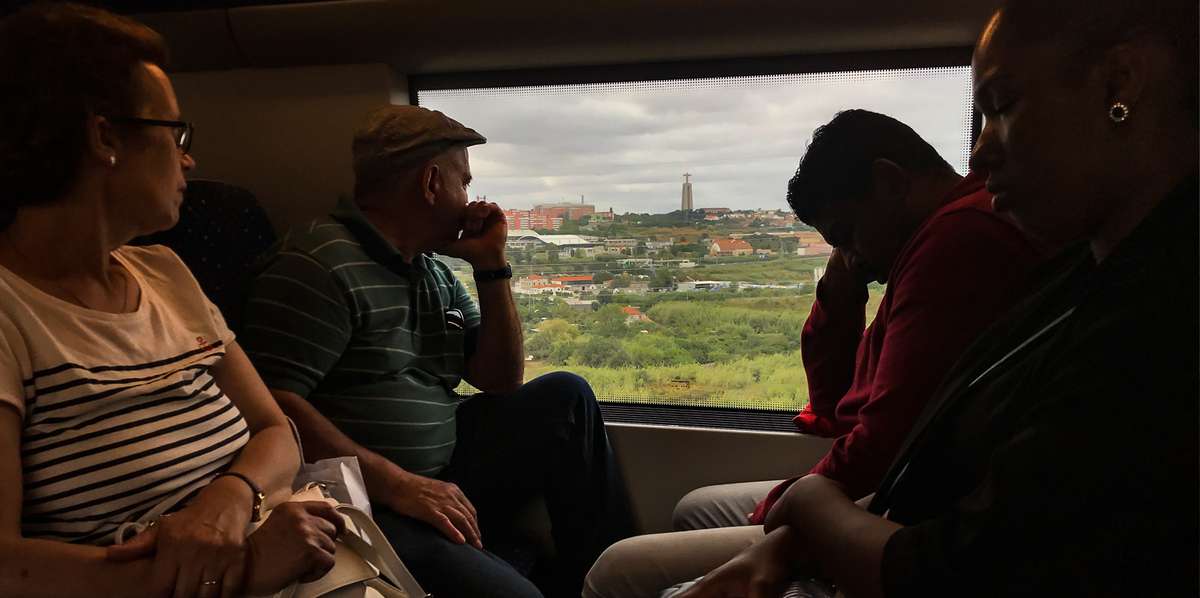
“The problem with landscapes is a problem of construction on how we look into landscapes. Landscapes are not facts, they are “landscaping” issues that function as meaning-making devices, narratives about what we are collectively, how we live together, how we expose the good or the uneasiness of this life together.” Script performed by Beatriz Caetano Bento. Photo from performance. https://www.rhi-think.com/activity/265/Continuum and https://www.trienaldelisboa.com/ohl/en/event/continuum-02/
Game of Mirrors
Game of Mirrors

- New alliances
Univocal ideas of Portuguese architecture contrast with radical transformation of the built environment in which it emerges. Architecture’s field of work remains generally rigid. The absence of spatial and territorial dimensions in public policies, as well as, architecture subjects, objects and contexts disconnection to those relevant to public debates, become specially visible on contemporary problems. Namely; housing, infra-structure, public space and urban segregations. Dialectics between architecture and discourses describing it are never neutral. Game of Mirrors is a cognitive and sensorial assessment device, of forms, themes and questions that shape reflection, contamination and representation, between built spaces and published works - images, drawings, texts. Taking into account prior performative assays, our final goals are to materialize this device for exhibition/experimentation and to endless simulation through a written and imagetic Game of Mirrors edition.
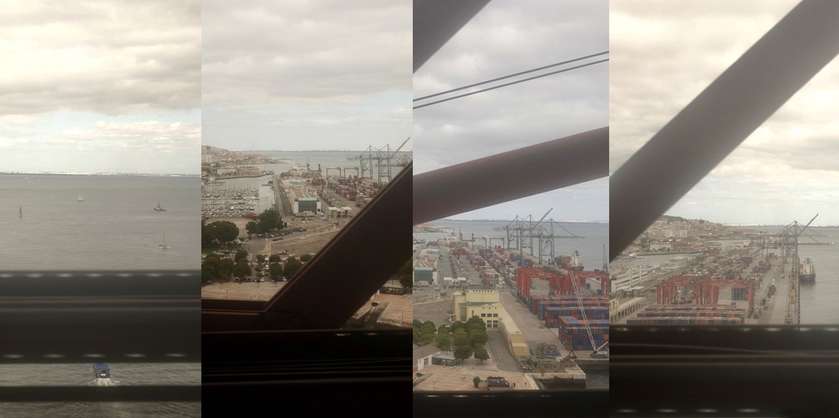
Methodology is developed around two lines crossing in a game of mirrors. One line is built on survey and analysis of the most relevant spaces built on the last decade, and later record with photography and video. The other is build on systematization of published texts (cathalogs, thesis, books) in the field of architecture, also in the last decade, selection of most relevant, organization by forms, themes and questions.
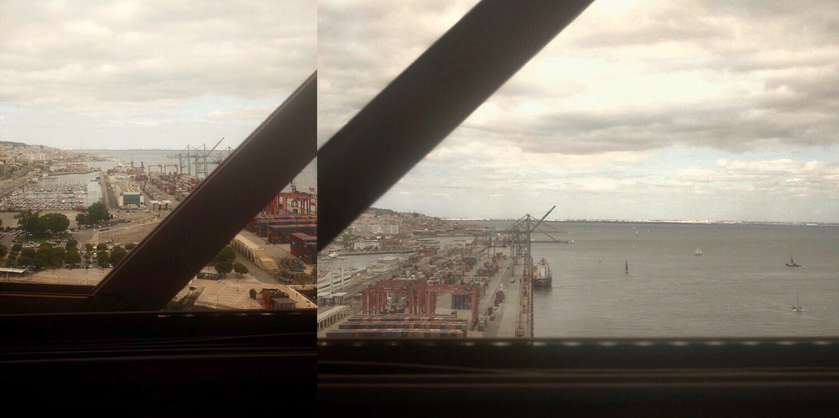
Game of Mirrors will have two complementary existences. A physical construction in which a sensorial approach to reflection, contamination and representation of mirrors brings us closer to measuring distances, proximities, identify absences and disconnections. And a paper edition that gives endless simulation to the game of mirrors and new life to the elements used to construct the device.
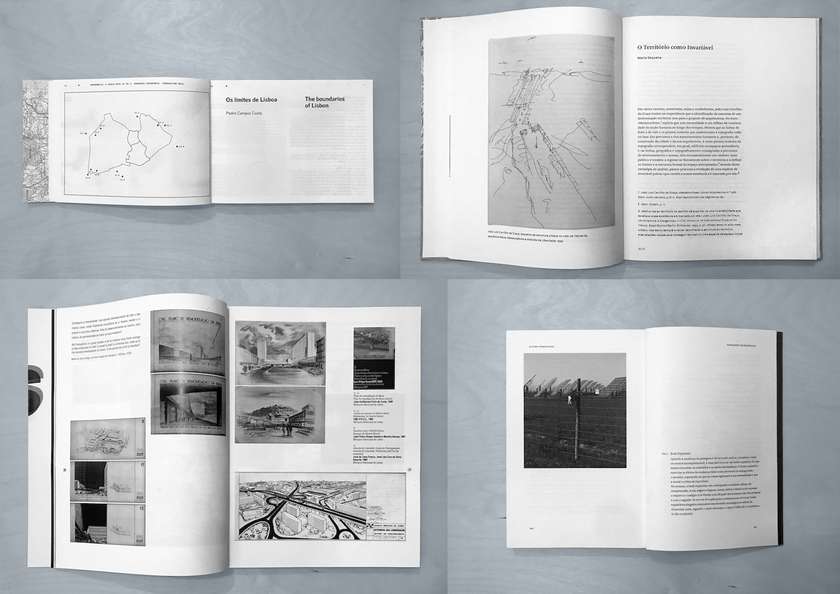
Continuum were prior performance moments based on a script. Written over an assemblage of selected parts of published texts from other authors in a methodology influenced by cadavre exquis technique. These were first aproaches to systematization of pertinent published works and to project formats versus space, time and public. The focus was on broad themes, landscape, heritage, urbanization and virtual space, and took place in regular trips in the subway and in the train crossing Tejo river.
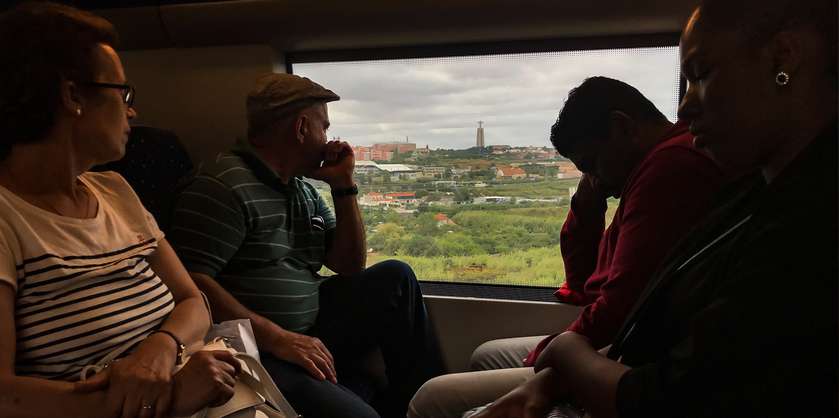
“The problem with landscapes is a problem of construction on how we look into landscapes. Landscapes are not facts, they are “landscaping” issues that function as meaning-making devices, narratives about what we are collectively, how we live together, how we expose the good or the uneasiness of this life together.” Script performed by Beatriz Caetano Bento. Photo from performance. https://www.rhi-think.com/activity/265/Continuum and https://www.trienaldelisboa.com/ohl/en/event/continuum-02/